This article is written by Ishita Manot pursuing Certificate Course in Advanced Civil Litigation from LawSikho.
Table of Contents
Introduction
Steve Madden founded the eponymous shoe brand, which he infamously launched from the trunk of his vehicle in 1990. More renowned as the spectacularly successful initial public offering three years later, which was managed or rather, grossly mismanaged, by the Long Island “pump and dump” brokerage company Stratton Oakmont. Madden’s connection with Stratton Oakmont and the management of his own shares in the business resulted in a series of SEC litigation and a 41-month jail term for stock manipulation and securities fraud, which he spent between 2002 and 2005.
Madden, who relinquished the role of CEO while in jail, returned as the company’s creative director immediately thereafter and continued to produce fashionable, runway-inspired looks for a fraction of runway cost.
In his 2014 statement, Steve Madden proudly stated, “To be honest with you, I haven’t had a lot of lawsuits. It’s surprising if you think about it. The amount of business that I’ve done.” Since then, he has set out to turn things on its head. He has been embroiled in several legal battles with many brands, including Balenciaga, Valentino, and Skechers, throughout the years, with varying degrees of success.
Let us have a look at some of the suits that have been filed against Steve Madden and his company, and what have been the consequences of those legal suits.
Converse v. Steve Madden, May 2020
Converse said in a case filed against Steve Madden in Massachusetts District Court in May 2020 that Steve Madden “sells sneakers, but instead of innovating its own designs, it often copies others”. According to the Nike-owned firm, Steve Madden began selling sneakers that resemble Converse’s distinctive Run Star Hike style.
Converse had taken precautions to safeguard its Run Star Hike design, including formally and legally seeking and receiving design patents from the U.S. Patent Office. Converse says that little over a year after launching its patent-protected Run Star Hike, Steve Madden began selling an infringing shoe called the Madden Girl Winnona Flatform High-Top sneaker. Converse’s repeated requests to stop infringing immediately were greeted with silence. When Madden did reply, they refused to cease selling their infringing footwear.
In addition, Steve Madden has released another infringing footwear model, the Shark sneaker. The sneaker has a design that is comparable to Converse’s existing patented footwear. Converse retaliated with another letter, this time insisting that Steve Madden immediately cease infringing on its patents. Converse, however, claims that Madden did not stop infringing. Instead, Madden launched an extra colourway of the infringing Shark sneaker, a model that has proven to be successful, since at least one of the colourways sold out quickly after its introduction.
In light of these considerations, Converse is seeking a “judgment and order that Steve Madden has infringed [its] Run Star Hike Patents by making, using, offering to sell, selling, and/or importing infringing sneakers into the U.S.,” as well as an order prohibiting Madden from infringing its patents in the future. Converse seeks monetary damages, including any/all “supplemental damages or profits for any continuing post-verdict infringement up until the entry of the final judgment, with an accounting.”
Deckers Outdoor Corp. v. Steve Madden, April 2020
Deckers Outdoor Corp., the parent company of UGG, sued Steve Madden for trade dress infringement, unfair competition, and design patent infringement in connection with the manufacture and sale of the “Fluff Yeah” slipper, which Deckers claims looks suspiciously similar to one that its UGG brand has sold – and heavily promoted – in recent years. Ugg claims that Steve Madden’s sandal is too similar to its footwear and is “likely to lead to and result in confusion, mistake or deception” for customers.
Deckers says that this is not only a matter of legally permissible inspiration but rather infringement because the design of its footwear is protected by federal trade dress, and Steve Madden infringes on those rights. However, the case was dismissed after both sides came to a settlement.
Steve Madden v. Rothy’s, August 2019
Madden sued Rothy’s after receiving a cease-and-desist letter from the San Francisco-based start-up, which claimed Madden’s Rosy flats were a “slavish copy” of its the point. Madden said that Rothy’s had no authority to demand that the point discontinue, claiming that it is strikingly identical to countless other ballet flats that have long been available in the marketplace. The company stated that their Rosy flats do not violate Rothy’s patent or trade dress rights.
According to Rothy’s, “in an effort to unlawfully leverage the valuable goodwill Rothy’s has developed through its innovation and significant investment, Madden blatantly copied the distinct, and protected style and appearance” of its popular The Point flats through the Steve Madden-branded Rosy Flats.
Rothy’s secured a victory in its ongoing legal battle against Steven Madden after the Delaware District Court denied Steve Madden’s motion to dismiss two of nine counts brought by Rothy’s; notably, trademark dilution and patent infringement.
Lucky Horse Press v. Steve Madden, January 2019
In this instance, unlike in others, Steve Madden was sued by an individual artist rather than a big fashion brand. As per the suit, the billion-dollar business ripped off one of Lucky Horse’s most popular designs, the “Far Out” patch, and prominently displayed the original artwork on their “Black B-Galaxy Backpack.”
As per Lucky Horse’s complaint, Steve Madden began selling a backpack featuring Lucky Horse’s design in or around 2017, and on March 29, 2018, shortly after discovering the infringement, Lucky Horse sent the company a cease-and-desist letter, notifying Steve Madden of the infringement and requesting basic sales data in furtherance of an amicable solution.
A settlement in the lawsuit resulted in the parties agreeing to a voluntary dismissal.
Alice + Olivia v. Steve Madden, December 2018
Alice + Olivia has filed a lawsuit against Betsey Johnson and its parent firm Steve Madden for utilising the face of Stacey Bendet, its founder and creative director to market a line of handbags. Despite notifying the two fashion companies of their infringement, Alice + Olivia claimed in the copyright, trademark, and trade dress infringement, trademark dilution, and unfair competition lawsuit that Betsey Johnson and Steve Madden were “unfairly, unlawfully, and intentionally [seeking] to copy, co-opt, and exploit a design.”
A settlement in the lawsuit resulted in the parties agreeing to a voluntary dismissal.
Steve Madden v. YSL, August 2018
According to Steve Madden, YSL sent many cease-and-desist letters in relation to its patent and trade dress-protected “Tribute” shoe. As a result, Madden filed suit, requesting that a federal court in New York rule that it is not infringing on YSL’s Tribute shoe and that YSL lacks any protectable trade dress rights.
YSL counterclaimed Madden’s complaint with its own accusations, claiming that at least five Steve Madden shoe designs infringe on its design patent. Madden cited the obvious differences between the two pairs of shoes and sought the court to reject all of YSL’s counterclaims. Two of YSL’s counterclaims were dismissed by the court, and the company was given the option to amend its counterclaim to establish further facts.
Following that, the companies filed a joint motion to voluntarily dismiss the lawsuit, indicating that they were able to address their disputes amicably outside of court.
Steve Madden v. Cult Gaia, March 2018
The Ark bag, with its complicated semi-circular design and light bamboo frame, posed an essential question: Is there even intellectual property at stake? The approximately 80-year-old Japanese bamboo bag, which had neither been invented by Cult Gaia nor Steve Madden, had not deterred either from delving into the legal quagmire.
In its complaint, Madden disputed Cult Gaia’s supposed trade dress protection and sought the court, as part of a declaratory judgement action, to rule that Cult Gaia’s design is not susceptible to trade dress protection, a subset of trademark law, because the design is “functional,” “generic,” and “ubiquitous” (all of which serve as bars to registrability).
The brands quickly reached an agreement on their own versions of the bamboo handbag. Both businesses claimed that the parties achieved an agreement on all claims and counterclaims. In light of an out-of-court settlement, the parties sought that the court issue an order conditionally dismissing the matter.
Allbirds v. Steve Madden, December 2017
San Francisco-based shoe start-up Allbirds sued Steve Madden for trade dress violation and unfair competition. Allbirds alleges Madden knocked off its distinctive wool lace-up shoes, giving rise to a trade dress infringement lawsuit. Both pairs of shoes have a fabric top, embroidered eyelets, and woven shoelaces. Allbirds’ version, on the other hand, is created from sustainable, natural materials and sold directly to the consumer. At the time, the brand had only two varieties of footwear, one of which was the Wool Runner.
The firm promotes its signature sneaker as “a remarkable shoe that’s soft, lightweight, breathable, and fits your every move,” and it claims Madden began selling a similar version, the “Traveler” sneaker. Madden then argued that Allbird’s claimed trade dress is “is generic, lacks secondary meaning, and is merely ornamental” and “consists exclusively of functional elements.” Madden’s defence is based on Allbird’s comments about how simple its design is, as well as third-party use of similar designs.
Valentino v. Steve Madden, June 2017
Valentino sued Steve Madden for copyright infringement in the United States District Court for the Northern District of Georgia, saying that the label had developed knock-offs of its patented handbag and “Camubutterfly” purse strap designs.
Both allegedly infringing designs have subsequently been withdrawn from Madden’s e-commerce site. Valentino has also requested that he be granted actual damages for the “financial injury” he suffered as a result of Madden’s violation.
Dr. Martens v. Steve Madden, March 2017
AirWair International, a Dr. Martens footwear company, sued Steve Madden for trade dress infringement, saying that Madden “knowingly and intentionally” duplicated one of its best-selling shoe designs.
Dr. Martens wants Madden to stop selling knock-offs and pay it millions of dollars in damages. Steve Madden responded to these accusations by dismissing any such possibility. He further contended that Dr. Martens’ trade dress registration should be revoked and declared null and void.
Aquazzura v. Steve Madden, June 2016
Aquazzura sued Steve Madden for violation of a design patent and unfair trade practices in relation to a number of its most successful footwear designs. The label stated that it had regularly protested to Madden about the sales of shoe designs that were blatantly similar to Aquazzura’s original versions, but to no avail. Finally, the brand had to pursue legal action to stop the sale of these knock-offs.
The action, which contains three counts of trade dress infringement, seeks to prohibit the sale and manufacture of all of these styles, to destroy all current unsold models, and to hold Steve Madden accountable for the profits made from the designs.
Stella McCartney v. Steve Madden, October 2015
Stella McCartney filed a case against Steve Madden in the Southern District of New York seeking damages for design patent infringement, trade dress infringement, trade dress dilution, deceptive trade practices, and unfair competition.
McCartney claims Madden’s “poorly-made” BTotally bag is “virtually identical” to her “well-known and enormously popular” Falabella tote and will “cause economic harm to consumers, given its shoddy quality.”
Skechers v. Steve Madden, July 2015
The two companies previously went head-to-head over patent infringement in 2011, and the issue was resolved out of court. Skechers USA Inc. again sued Steve Madden Ltd. in 2015 for infringing on seven of Skechers’ design patents linked to its “Go Walk” line with their Steven by Steve Madden “Setta” shoe design. Skechers sought compensatory and punitive damages, as well as injunctive relief, for patent infringement on a number of Skechers’ patents.
Balenciaga v. Steve Madden, May 2014
Balenciaga filed a lawsuit against Steven Madden, accusing the label of trademark infringement by imitating the style of its celebrated “Motorcycle bag.” The action for trade dress infringement was filed in the Southern District of New York, and it sought a halt to the allegedly infringing sales as well as recoupment of lost earnings. According to the complaint, such sales might confound buyers and give the misleading impression that Steve Madden’s items are Balenciaga’s, harming the company’s goodwill, reputation, and revenue.
Jeffrey Campbell v. Steve Madden, June 2011
Jeffrey Campbell filed a design patent, trade dress infringement, and unfair competition case against Steve Madden for allegedly replicating the footwear design. According to Campbell, Steve Madden’s Carnby-L shoe design “is believed to be a copy or knock-off of Jeffry Campbell’s Lita Shoe design”.
Balenciaga v. Steve Madden, December 2009
In relation to its lookalike renditions of the “Lego” shoes that Balenciaga had presented as part of its Fall/Winter 2007 collection, Balenciaga filed suit against Steve Madden, citing Trademark Infringement, Copyright Infringement, Unfair Competition, and False Designation of Origin. The parties reached an agreement over two years later, with Madden paying an “undisclosed amount” to Balenciaga.
Alexander McQueen v. Steve Madden, October 2009
Alexander McQueen filed a trade dress complaint against Steve Madden through its intellectual property holding firm, Autumnpaper Limited, stating that Madden’s Seryna bootie was a “studied imitation” of its Faithful bootie. They filed the complaint after McQueen’s attorneys issued Madden a cease-and-desist letter demanding that the firm stop monetizing the sneaker, but Steve Madden refused to comply. They ended up resolving the dispute out of court.
Deckers v. Steve Madden, January 2006
Deckers Outdoor Corporation, the parent company of UGG, filed a trademark and trade dress infringement suit alleging that Steven Madden, Ltd. was selling knock-offs of Deckers’ iconic UGG Rock Star and Uptown sheepskin boots.
Steven Madden admitted infringement, agreed to pay an undisclosed settlement sum and consented to an injunction. Steve Madden was also ordered not to create, reproduce, manufacture, advertise, promote, sell, offer to sell, import, or distribute any of the infringing items.
SEC v. Steve Madden, May 2001
Steve Madden’s career started inauspiciously when in 2001, the U.S. Securities and Exchange Commission filed charges against him in Federal Court in New York state, alleging SEC violations. The SEC claimed that he participated in unlawful insider trading in the securities of Steven Madden, Ltd.
Madden was found guilty of acting as a “flipper” of his shares by buying stock in IPOs at a prearranged price and then selling it back at a set price to artificially inflate the price of the stock. Furthermore, he had an agreed-upon profit with Stratton Oakmont, the brokerage firm portrayed in the film Wolf of Wall Street for this unlawful “flipping” of his company stock. These transactions were executed through the sale of stock, but it was not reported in accordance with the Securities Exchange Act of 1934 and the Securities Investors Protection Act of 1970.
Madden was indicted for stock manipulation, money laundering, and securities fraud in 2002. He was sentenced to 41 months in jail and was forced to resign as CEO of Steven Madden, Ltd. as well as the board of directors. Even after his resignation as CEO, Madden set himself up as a creative consultant with Steven Madden, Ltd., a job for which he was paid $700,000 even while incarcerated.
Since Madden’s release from jail in 2005, the company swiftly recovered, boosting sales by over $100 million to $475.1 million in 2006. Steven Madden, Ltd. was selected ‘Company of the Year’ for the second time at the Footwear News Achievement Awards that same year. With Madden still acting as the company’s design head, the company’s growth rate has remained consistent year after year.
Conclusion
Coco Chanel once remarked, “A fashion that does not reach the streets is not a fashion,” which Steve Madden may have taken rather literally. The label is notorious for ripping off designs from its rivals and selling them at a lower price to attract consumers and has developed a reputation as a copycat amongst fellow designers. Relatively speaking, the brand might not have been sued as frequently as you might expect of a billion-dollar-plus company in the business of fast fashion, but that does not mean that it has not entangled itself in its fair share of infringement-centric legal matters. Be it IPR infringements or securities frauds, Steve Madden has seen it all. But the pile of litigations against him does not seem to bother him. The company is still in operation and one thing is clear from Madden’s legal history that it prefers to settle most cases brought against it, quietly and confidentially outside of courts.
Students of Lawsikho courses regularly produce writing assignments and work on practical exercises as a part of their coursework and develop themselves in real-life practical skills.
LawSikho has created a telegram group for exchanging legal knowledge, referrals, and various opportunities. You can click on this link and join:
 Serato DJ Crack 2025Serato DJ PRO Crack
Serato DJ Crack 2025Serato DJ PRO Crack


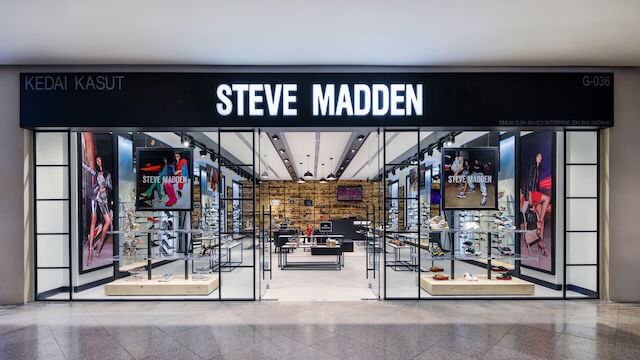

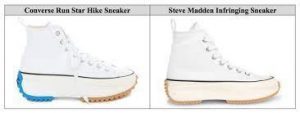
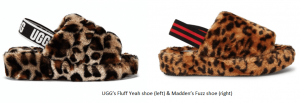
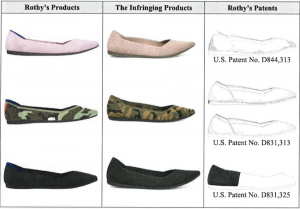

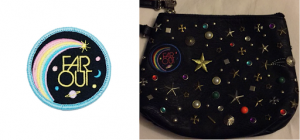
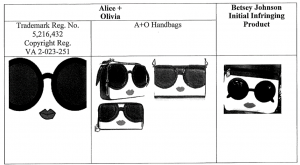
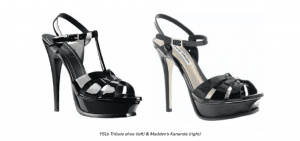
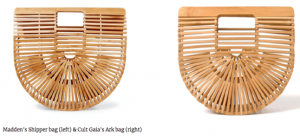
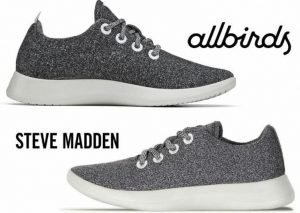
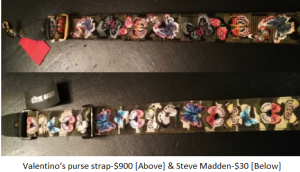

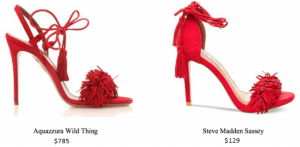
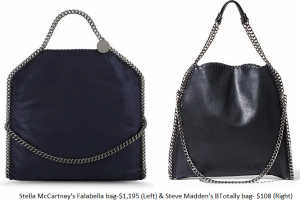
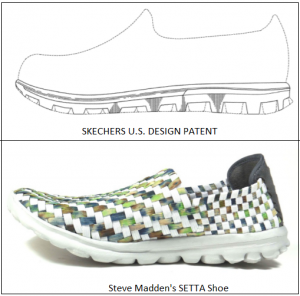
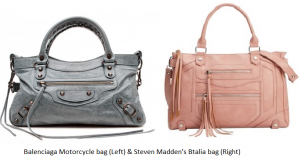
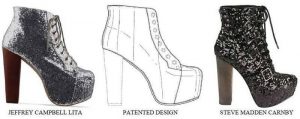
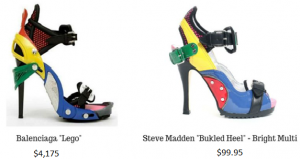
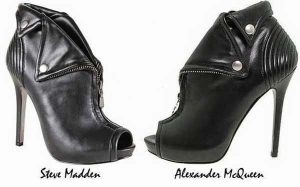





 Allow notifications
Allow notifications


